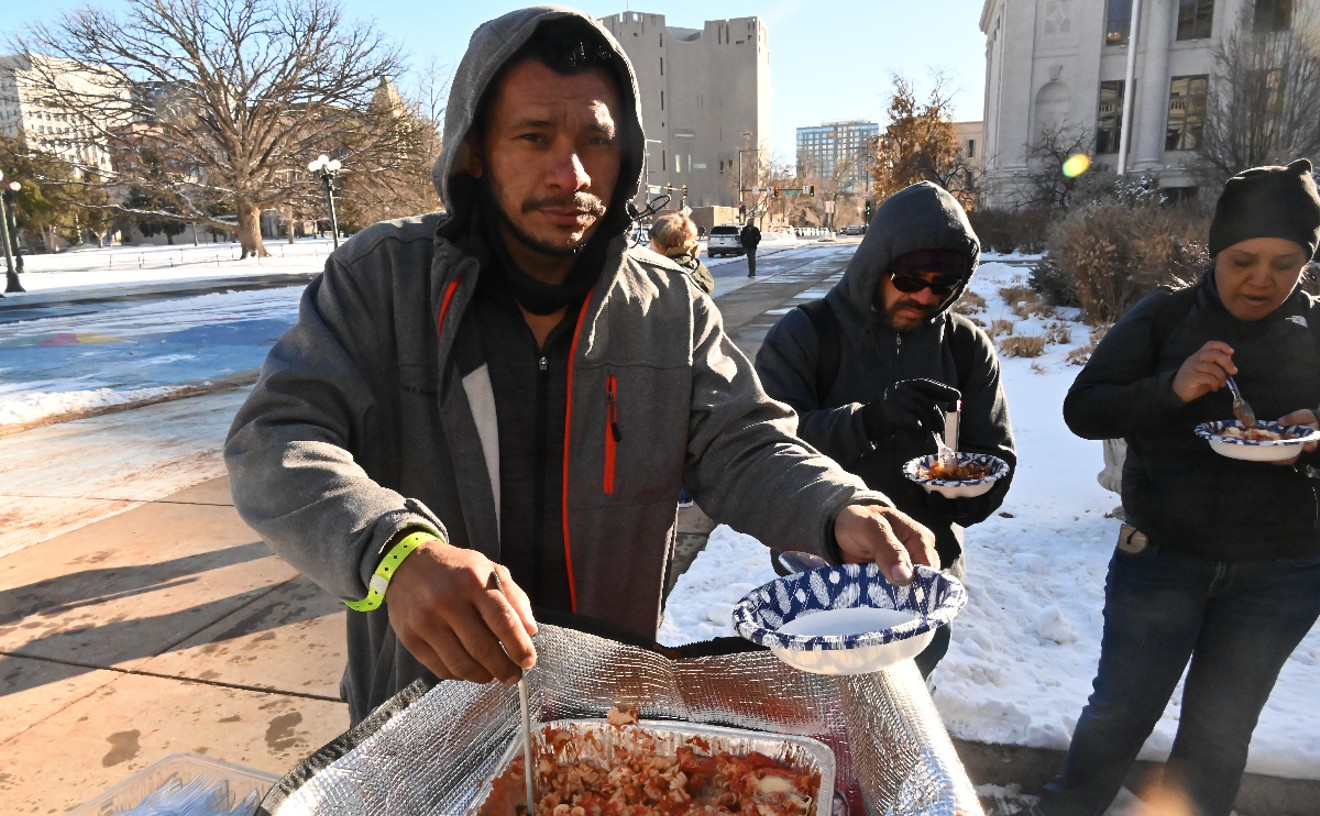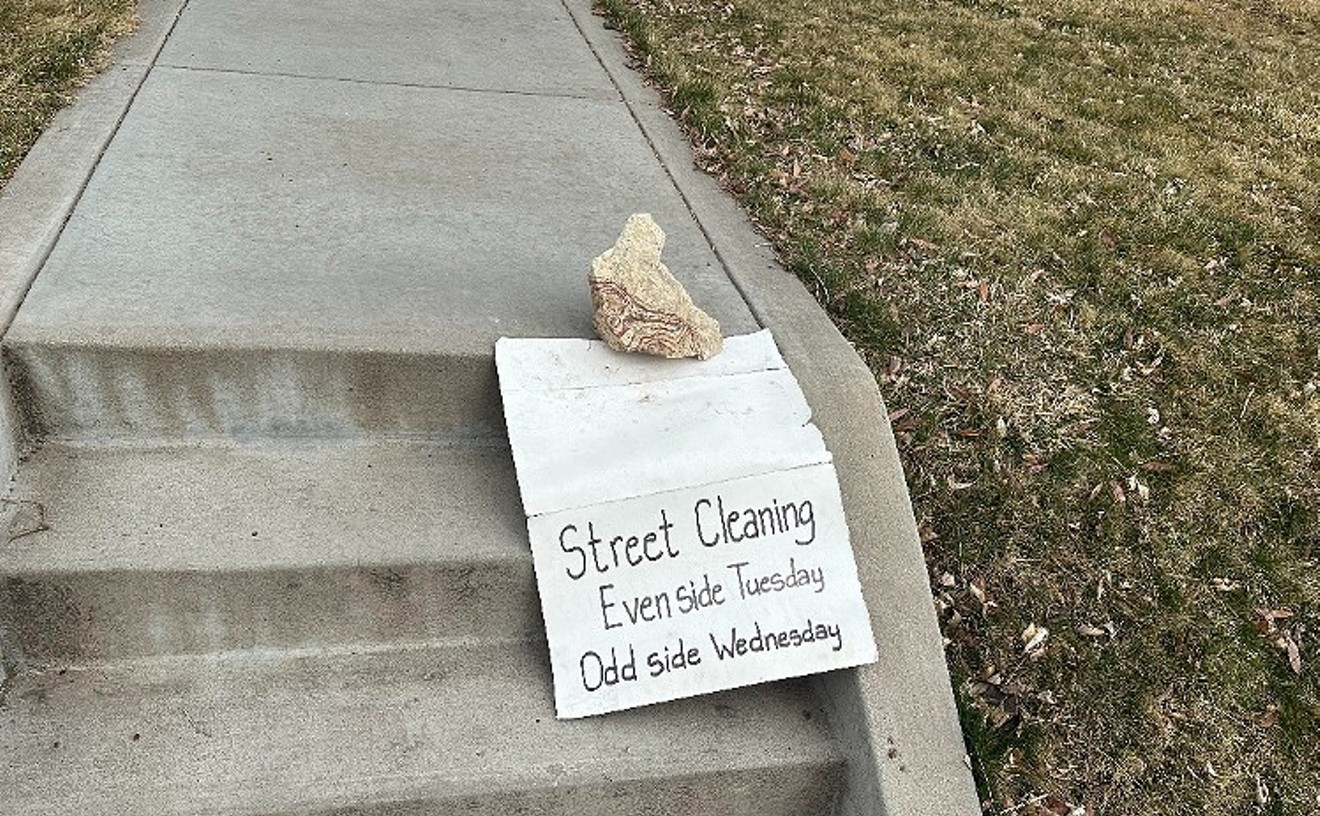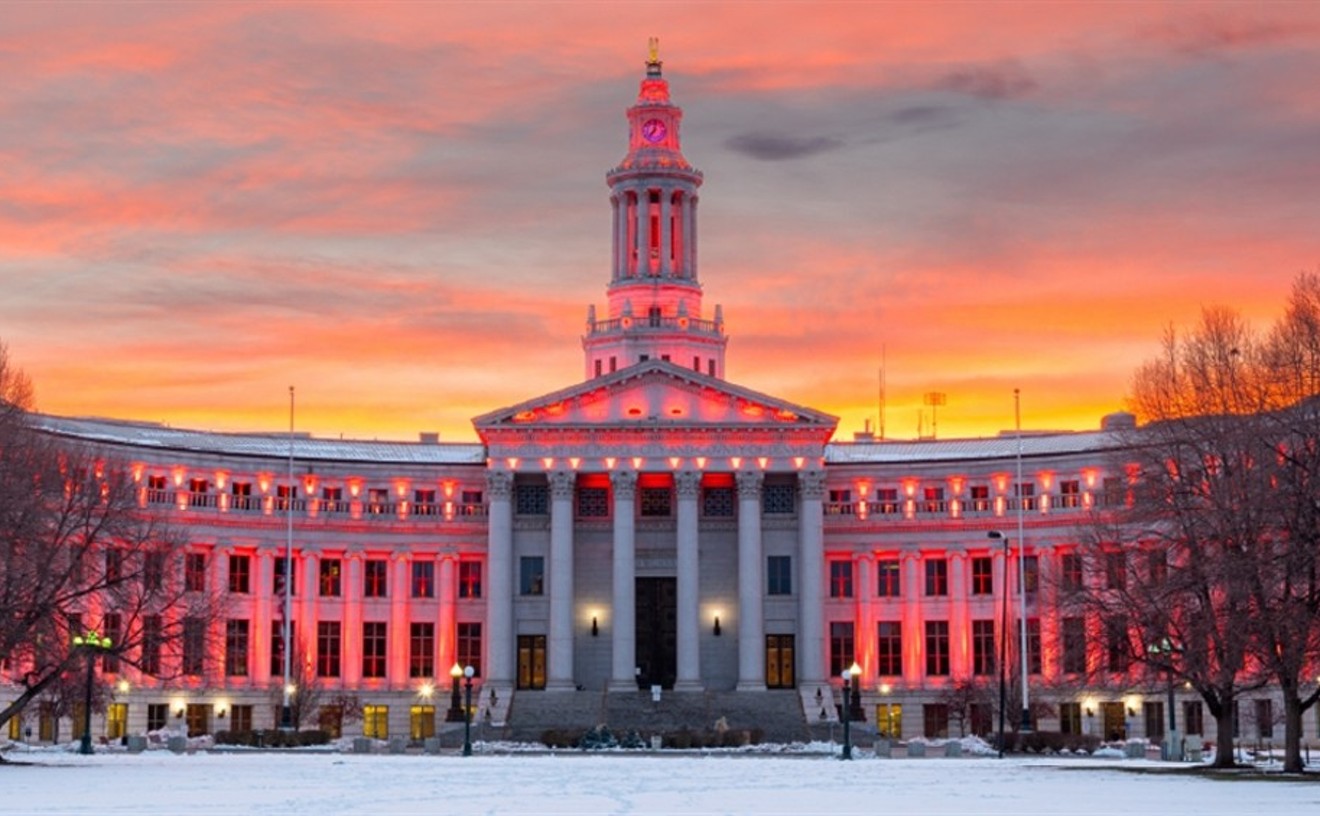University of Colorado student Max Karson's decision to leave the state (reported in this August 22 More Messages blog, which includes a virtual archive's worth of links to past Westword stories about his shenanigans) lacked a very important voice: his. Fortunately, we managed to reach the headline-maker in San Francisco -- and in the conversation below, he proves to be every bit as provocative as ever.
Karson moved to the Bay Area just over a week ago. "The plan is to become a successful writer," he says, noting that he's made a start on a memoir that will cover "all 23 years that I've been alive for." He hasn't begun shopping the manuscript yet -- although, as he acknowledges, this blog makes the project public. Still, he'd prefer to finish the tome before seeking opinions about it. In his words, "it's easier for me to just write straight through without getting any feedback at first, especially since I know it's going to be unpublishable."
That didn't prove to be the case with Karson's previous scribbling in part because he printed much of it himself in newsletters such as The Yeti. But on several occasions, his satirical intent was missed, to controversial effect. In 2006, for example, numerous people on the CU campus found his essay about "the myth of the female orgasm" to be sexist in the extreme. And this year's "If It's War the Asians Want...," posted by CU's online Campus Press publication, was widely reviled as racist even though Karson intended to ridicule prejudice, not promote it.
In addition, Karson was arrested shortly after the April 2007 shootings at Virginia Tech after saying in a class that he could understand why someone might go on such a lethal spree, since things like unpainted walls upset him to an extreme degree. The following August, a judge ordered that his record be wiped clean if he stayed out of trouble with the law for the next year -- and last week, he celebrated a happy anniversary. Maybe that's why he sounds so magnanimous when he's asked to remark about the various persecutions aimed at him, be they figurative or literal.
"I think it's the natural response of a system to react badly to something that criticizes or threatens it," he allows. "So I don't really place any specific blame on anybody except me, and I don't even think anything in particular went wrong -- except for the time I got arrested. I could have done without that. But otherwise, it was an eye-opening and mostly enjoyable experience."
Does that mean Karson was amused, not upset, by many of the splenetic responses he stirred? "I was laughing some of the time, that's true," he confirms -- and besides, "most news is junk anyway." But he was also gratified by the debates that rose from the media spectacles he spawned. "I think the issues that were raised up in the last couple of years are good to talk about," he maintains.
As for the criticism heaped upon him, it seldom left a mark. "People would say, 'He just wants attention,' and that doesn't really bother me, because I do," he concedes. "I'm a writer and I want people to read my writing. I want a lot of attention -- so that's an incredibly obvious thing to point out. But the things that stuck were when people would say, 'I've had personal experiences with the things you're joking about and making light of, and you really hurt my feelings.' There isn't a really witty counter-argument to that."
This was especially true after the "Asian" dust-up. "I got e-mails from people, and met some people, who said, 'I've had some really horrible experiences on this campus.' They wouldn't say, 'You shouldn't have written that,' or 'You're a bad person.' They'd say, 'It upsets me that you were just making jokes about it.'"
Yet Karson doesn't feel guilty about his wisecracks, since they helped lead to an on-campus event at which racial bias was publicly decried. "The rally and the speeches were good things when they weren't just about me," he says. "Even if people got upset, I think that dialogue about racism or injustices is inherently good -- and a good way to get people to participate in that is to make the dialogue humorous. And that's what I tried to do.
"What I wrote was designed to be jarring and somewhat self-contradictory in a way that would upset people who read it," he continues. "And the purpose of that was to draw attention to the issues I'm talking about. I didn't want it to be an easy read. That was intentional -- and I don't think that's a bad thing. I don't want to live in a world where you can pick up anything and read it and know that you're not going to get upset."
Right now, Karson's Yeti material won't be firing up anyone, since he moved his archives from its previous web location. "I don't want to pay ten dollars a month anymore for it," he says. "I'm focusing on the book, and if I write anything shorter, I'd like to be paid for it. I've probably spent over $2,000 on my writing career since I was sixteen, and even though that's cheaper than skiing, it's still an expensive hobby, and I'd like to recoup some of the costs." The appeal of doing so by penning books lies in the form's "creative control, and the way an audience can really get to know you," he points out. "But I also like the minute-by-minute, community aspects of journalism." Not that he has any illusions about being signed up by the San Francisco Chronicle anytime soon. "Basically, I'm going to be mopping floors and begging people to publish my writing," he notes.
At least the change in location is to his liking. "My brother moved here about the same time I did, and I've visited here a couple of times and really liked it," he explains. "And it doesn't have the things that I don't like about Boulder."
Such as? "It doesn't have the thinly veiled, hyper-conservative attitude," he says. "Or the fact that everybody is white, and the unfriendly attitudes toward anybody who's gay or different in any way. I'd rather go to a place that actually has real diversity instead of listening to a lot of rich white people talk about diversity."
Of course, many conservatives think San Franciscans suffer from the sort of politically correct mindset that might be just as unreceptive to his brand of prose as many Coloradans were. Karson hasn't found that to be the case thus far, but he concedes, "I haven't said anything horrible to anyone yet. When I do, we'll find out."
In the meantime, he's gotten more perspective on his time in Colorado. Asked if he has fond memories of the place, he says, "It's about fifty-fifty, fond to not-fond -- which,would still be an 'F' if I were grading it. But I think that for every bad thing that happened, something good happened, too. And it wasn't boring. Well, school was boring. But I think the experience as a whole wasn't boring -- and that's really all I could ask for." -- Michael Roberts











